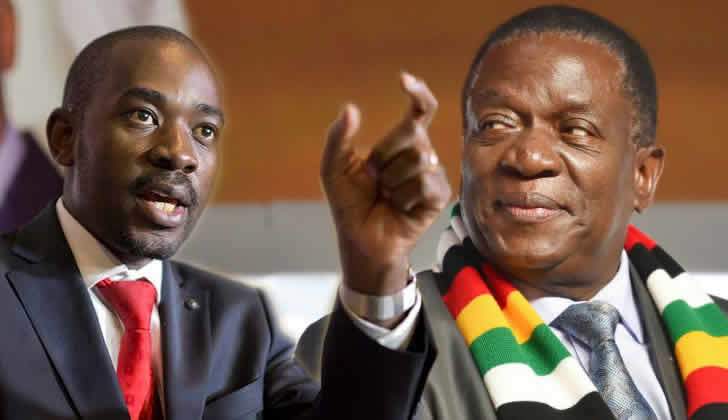ZIMBABWE is hurtling towards elections in 2023 amid growing calls for national dialogue at a time political violence is on the rise.
The Daily News on Sunday’s political editor Mugove Tafirenyika spoke to renowned professor of world politics at the School of Oriental and African Studies, University of London, Stephen Chan on this and other issues.
Below are excerpts from the interview.
Q: MDC Alliance leader Nelson Chamisa is on his whirlwind tour of the countryside. How important is it ahead of the 2023 elections?
A: Chamisa is right to break out of his areas of heartland urban support. But he can’t present himself as a city lawyer.
He must speak to the farmers and peasants meaningfully in terms of their concerns.
A whirlwind tour should be the start of longer tours so voters can get to know him.
But it is a good strategy to take the fight into the Zanu PF heartlands.
Q: Do you think he will achieve the goal of uniting Zimbabweans given the escalating violence that has characterised his tour of rural areas?
A: He should certainly talk about unity, and he should certainly practise as much restraint as possible in the face of provocations.
His people need to film all crowd scenes for real-time dissemination in case violence erupts.
Q: It appears all stakeholders in the country now agree on the need for national dialogue, what do you think can be done to start the dialogue process?
A: Chamisa should actually stress dialogue as a unifying option on his rural tour as well as in his city speeches.
He must take the initiative on this, rally support in the rural areas and also, importantly, on social media among the members of the diaspora.
Q: How important is dialogue to Zimbabwe?
A: Dialogue is the one thing that will make the international community start to take Zimbabwe seriously again. What has happened for far too long is a country sounding like a broken record.
Dialogue would enable new ideas to come to the fore. But it needs to be actual dialogue, not talking past each other with sound bite slogans and accusations.
Q: Do you think a government of national unity is the best way to go for Zimbabwe or what sort of an arrangement do you think can solve the current crisis?
A: A government of national unity would result instantly in the lifting of remaining sanctions.
It would act as a signal for investors to contemplate doing business in Zimbabwe on a range of projects. But this means the portfolios of agriculture and industry have to be placed in the hands of technocrats.
In short, it shouldn’t be formed by a squabble over which party gets which portfolio, but whether both parties can agree on the best people to occupy these key positions — even if they are not members of any party. National unity needs to go beyond just the parties.
Q: If dialogue fails, is it possible for the country to hold credible 2023 elections? Support your position.
A: Elections in 2023 would basically be a sort of re-run of 2018 — which satisfied no one.
With new ideas being put forward within both dialogue and unity, there could be a real debate in the 2023 elections as to who is best qualified to execute those new ideas.
Q: As a political analyst, what is your assessment of President Mnangagwa’s rule since 2017?
A: I do have to say that President Mnangagwa has been very disappointing in terms of executing his policies. There are too many announcements and sound bites and far from enough follow-through.
It seems ridiculous to announce compensation for white farmers when everyone knows there are no funds available.Whether white or black, there are no real funds available for agricultural and industrial stimulus — and far too many greedy hands seeking to seize what funds are somehow available.
Lack of full transparency and the continued use of side-deals and leakage make Zimbabwe into a kind of pirate state.
Mnangagwa was well placed to start a clean-up of that situation, but he has very visibly not moved in any significant fashion in that direction.
Given the dire economic situation of Zimbabwe, he should have had two objectives; to stop the poor getting much poorer and to stop the very rich from getting so much richer by often opaque means.
Q: What is your assessment of the state of opposition parties in the country at the moment?
A: Oh, they’re largely hopeless. They don’t use Parliament. They don’t propose alternative policies by ways of sponsoring new legislation.
They don’t make technical statements about the key economic issue of the day — whether or not to dollarise. The 2023 elections will basically be fought at presidential level, not at Parliamentary level.
That’s why Chamisa’s emerging electoral strategy is so important to him and to his chances.
Q: Is there any chance of the opposition, especially Chamisa, unseating Mnangagwa at the polls?
A: In a fair election, it would be a close race between Mnangagwa and Chamisa; age versus youth; the past versus the future and national liberation versus international respect and participation.
The results would depend on whether Zimbabweans want to come out of their shell.
That little self-regarding shell has been a Zanu PF accomplishment.
Q: What is the state of the human rights situation in the country?
A: It has always been the case that you have freedom of speech unless the authorities feel threatened by it. Right now, the tipping point of when a threat is felt has dropped to a very low point. Human rights couldn’t feature as a success on any barometer or comparative table.
Q: Political violence cases are on the rise ahead of the 2023 elections, what is your comment on the role of civil society?
A: If you have to use violence as a core strategy that means you have no winning ideas.
That’s a very sad situation. Civil society is very important in any country e.g a lot of the push for world leaders to take the environment more seriously at COP26 came from civil society.
A free country is a country that enables free civil society and the debates it generates.
But Zimbabwean civil society is right now as affected by the same weariness that is felt by almost every other sector of Zimbabwean society.
Q: Any possibilities of the country plunging into civil unrest and what are the likely triggers?
A: I don’t see any lurch towards full-scale violence or sustained civil unrest.
That does not mean there won’t be an explosion of joy at any future moment of change.
There is a lot that is pent up in Zimbabwe right now.
The spectacle of Hakainde Hichilema starting to make all the right moves in neighbouring Zambia will raise questions as to why that can’t happen in Zimbabwe.




